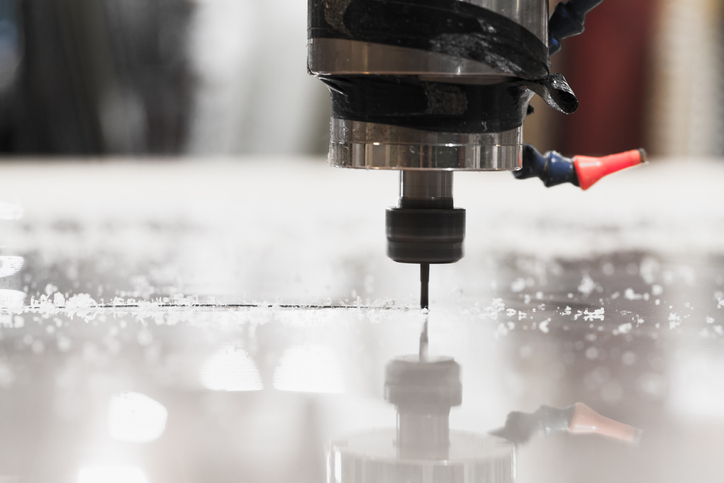Common Plastics for CNC Machining

Plastics have become an indispensable material for manufacturing countless products, from cheap toys to highly engineered spacecraft components. The variety of plastics available makes them suitable for different manufacturing processes, such as molding, 3D printing, and even CNC machining.
When many people think of CNC machining, metals come to mind. However, CNC machining has quickly become a popular technology for the manufacturing of plastic components as well. Some of the benefits of CNC machining over other processes include:
- Lower initial cost than injection molding because expensive molds are not needed
- Tight tolerances are achievable
- Consistent parts are produced
- Complex geometries that are challenging to mold can be made
- Great for low volumes and prototypes
- Perfect solution for plastic materials that aren’t easily molded
- Creates a smooth, clean surface finish without additional polishing
Choosing the Right Plastic
Unlike molding or 3D printing, CNC machining is a subtractive process. It uses multi-axis tools to drill or cut away material from a solid plastic block. CNC machining, in many cases, can produce parts with tighter tolerances than injection molding. As with any manufacturing process, choosing a suitable material for the process and your component is critical for success.
Depending on the application, several plastics are machinable. However, machining plastics is very different from machining metal, so working with an experienced partner is essential. Common plastics include:
Acetal – Acetal is chemically resistant with excellent wear and abrasion resistance properties. Acetal parts can maintain their shape when exposed to high temperatures and pressure. It is ideal for machining parts that demand stiffness, dimensional stability, and low surface friction.
Acrylic – Acrylic is a transparent polymer, sometimes referred to as plexiglass. This lightweight material is easy to machine, but it will require secondary polishing to regain its transparency after machining. It has an excellent ability to hold close tolerances. A smooth, burr-free finish can be accomplished, even with complex geometries, if proper tooling is used. Acrylic doesn’t offer the same strength properties as other plastics and will crack under too much pressure, so acrylic parts shouldn’t be used as structural components.
Acrylonitrile Butadiene Styrene – Acrylonitrile Butadiene Styrene (ABS) is one of the most common thermoplastic polymers manufactured. It is used in applications ranging from toys to electrical insulators and automotive parts. This versatile plastic offers good mechanical properties, including a strong resistance to chemicals and impact resistance, toughness, and rigidity.
Nylon – Like ABS, Nylon is well suited to various environments and is ideal for parts that require high compressive strength and friction resistance. It offers a higher impact strength than many other plastics. Nylon machines well, however, it is but is prone to moisture absorption, so this must be considered if the component will be used in a humid environment.
Polytetrafluoroethylene – Polytetrafluoroethylene (PTFE), commonly called by its trademarked brand name Teflon®, is often used for applications that require chemical resistance and thermal stability. It is easily machined, which is perfect for parts with complex geometries or intricate designs.
Polyetherimide – Polyetherimide (PEI), known by its Trade name Ultem, has excellent dielectric and mechanical strength. It is a great choice for parts that require rigidity and good resistance to hydrolysis (a trait needed for repeated autoclaving). In addition, PEI offers broad chemical resistance and is inherently flame resistant.
Choosing an Experienced Partner
At Aztalan, we’ve spent the last two decades perfecting engineering practices tailored to machining plastics. Our skilled machinists have experience working with a wide variety of plastic and are well versed in the care needed to machine each of these materials.
A material’s inherent properties can create challenges with machining and require experience to know when adjustments must be made. Acetal, for example, has a natural lubricity that makes it difficult to hold while machining. Care must be taken to secure this type of material properly to achieve tight tolerances and critical surface finishes, making proper work holding a key factor. Plastic can also be very abrasive, shortening tool life and making proper tool selection a must.
Are you ready to learn more? Let us quote your next project. We use our knowledge and experience to provide realistic quotes that consider factors specific to machining plastic.
